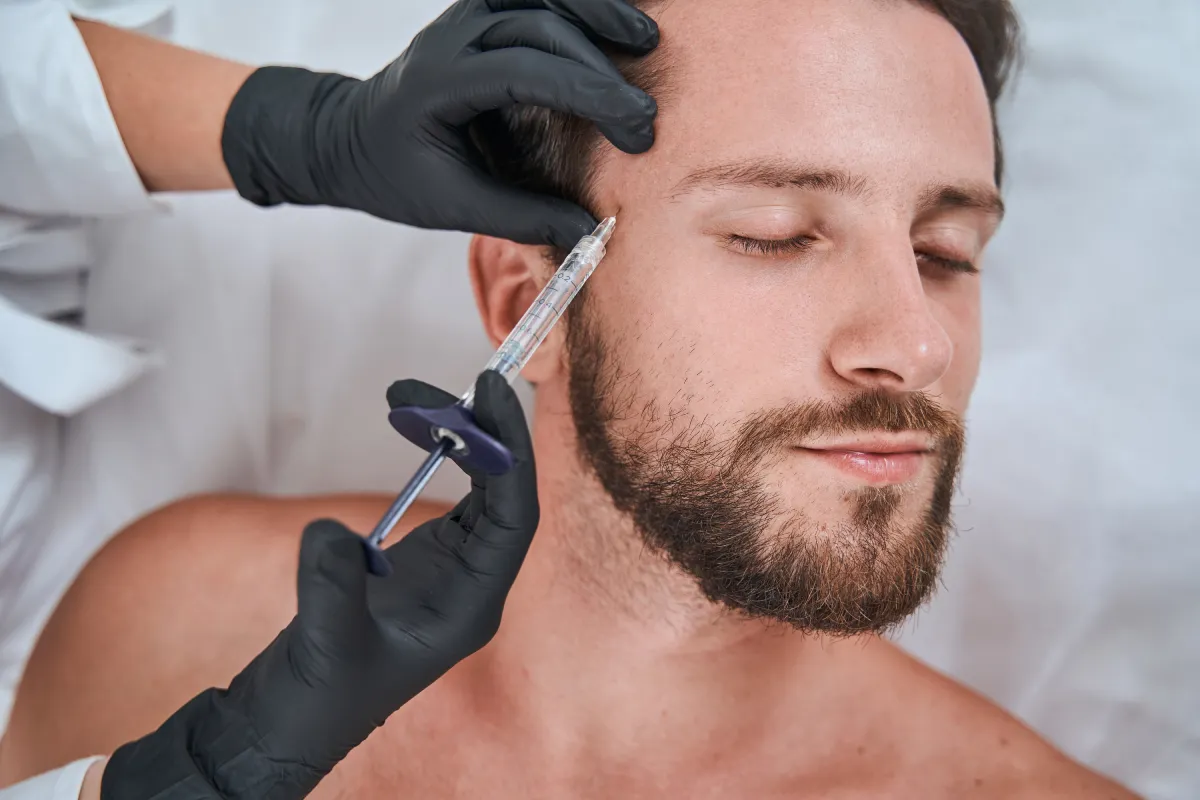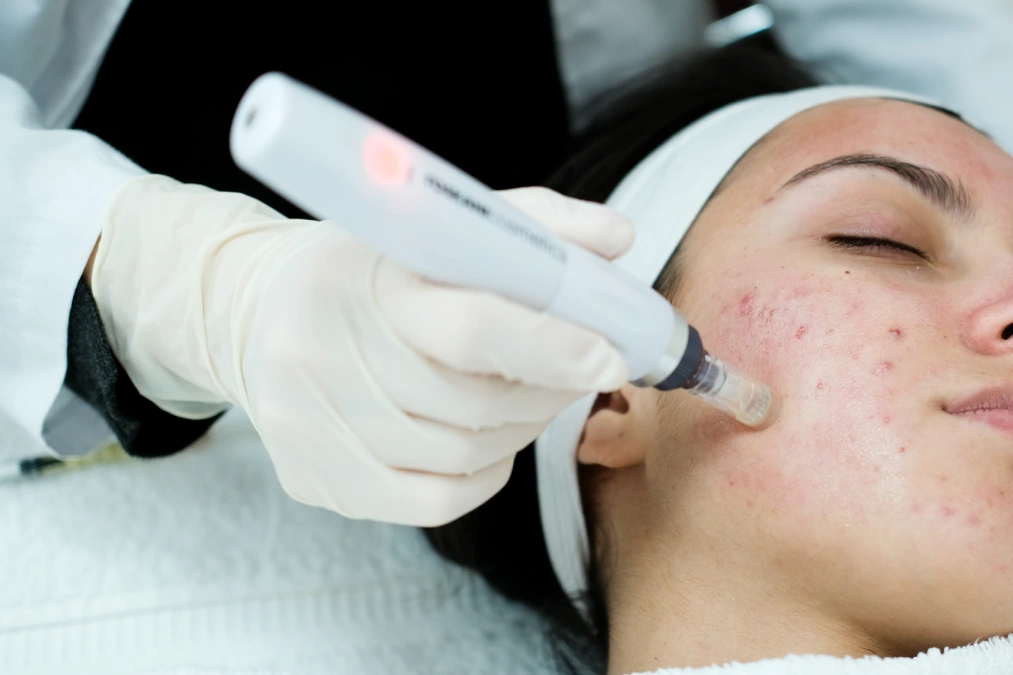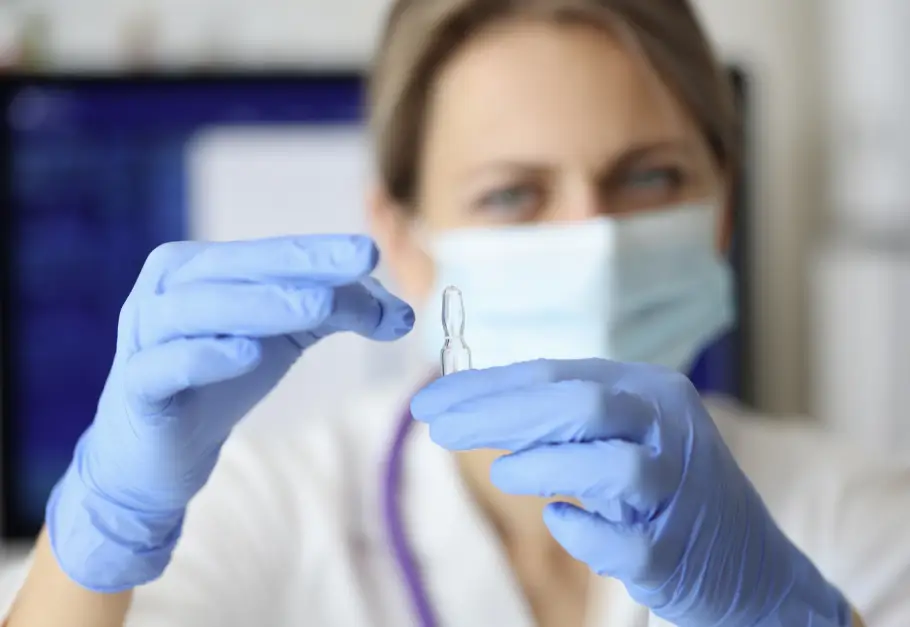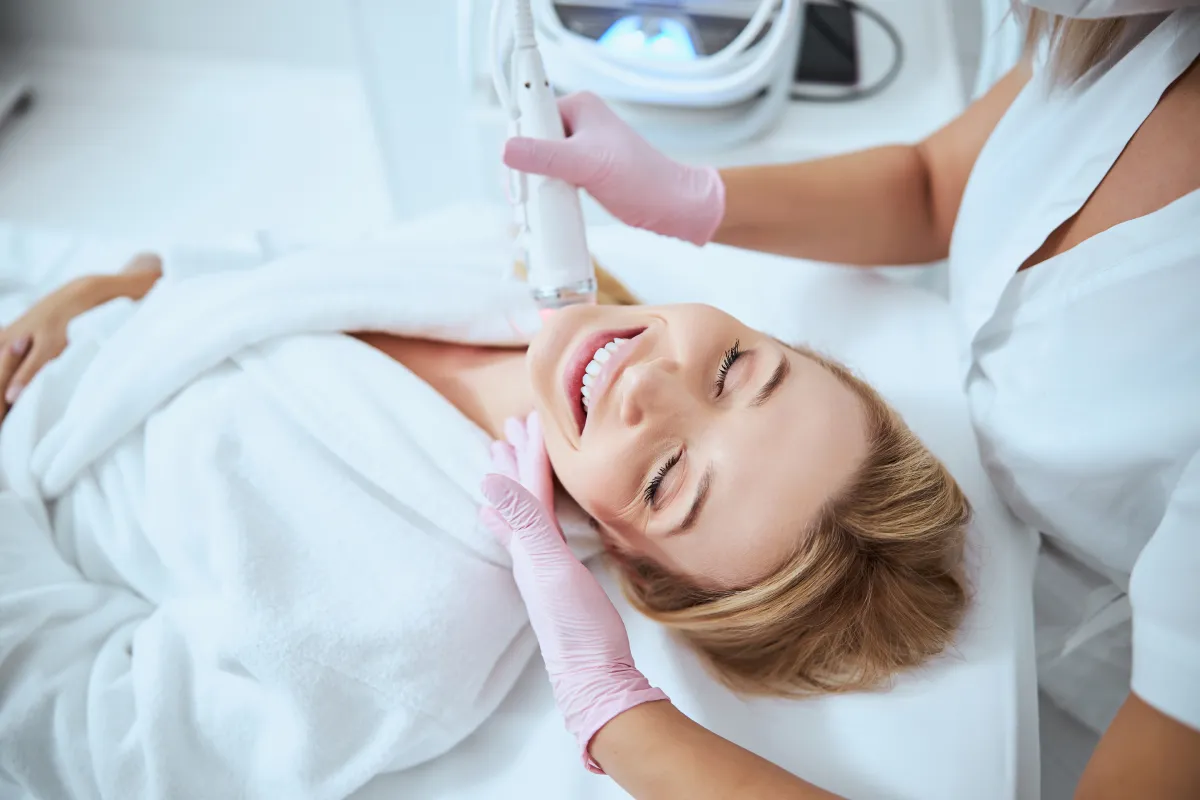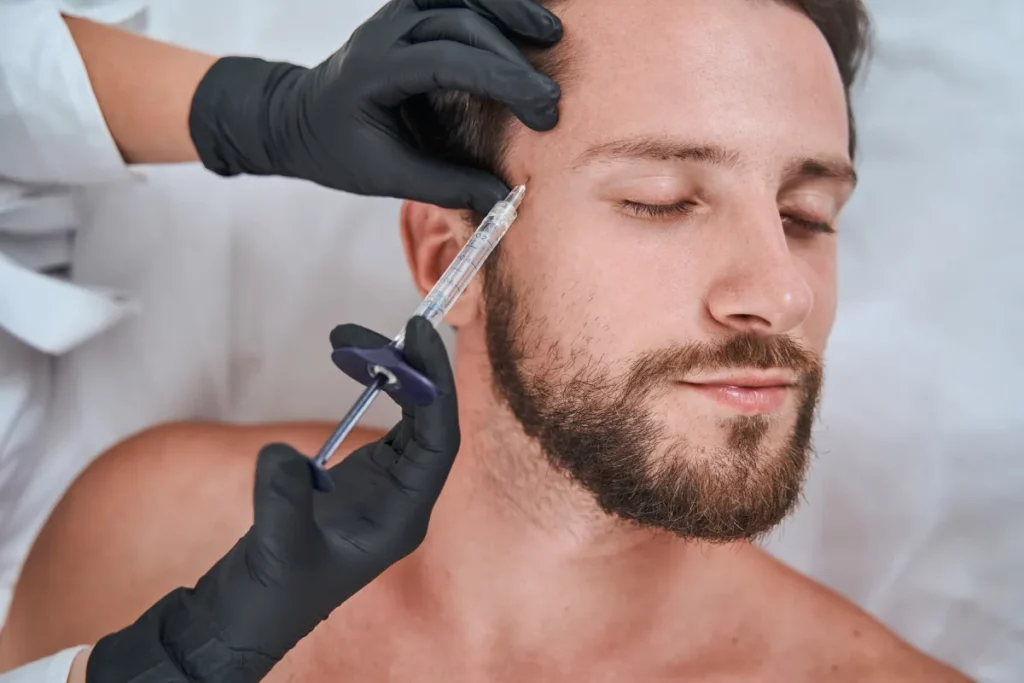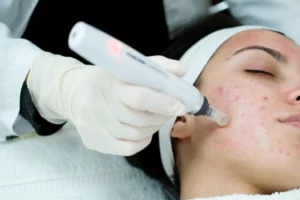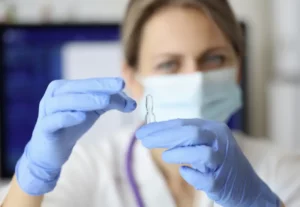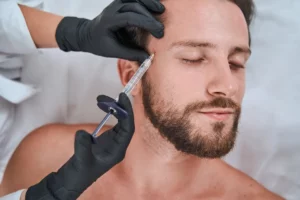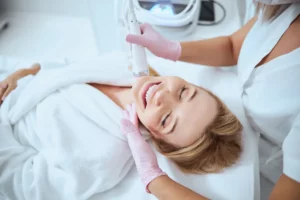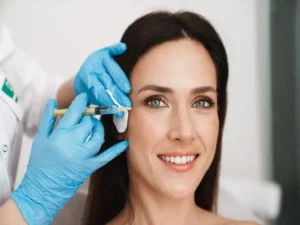Before undergoing dermal filler treatments, particularly in areas as delicate as under the eyes, it’s essential to be aware of specific substances and habits that could affect the outcome and recovery process. Being informed about what not to take before receiving dermal fillers ensures a smoother treatment experience and optimal results, making it a crucial step for anyone considering this popular aesthetic enhancement. Let’s shed light on essential pre-treatment advice to follow for those considering dermal fillers in Coral Gables, FL, with a particular focus on under-eye treatments.
Understanding Dermal Fillers
Dermal fillers are injectable treatments used to add volume, alter contours, and fill in wrinkles on the face. While there are various types of fillers, hyaluronic acid-based fillers are the most common, particularly for under-eye treatments. This area is delicate and requires precise application by experienced professionals, making the choice of clinic and practitioner crucial for optimal results.
Pre-Treatment Advice: What Not to Take
When preparing for a dermal filler treatment, especially in delicate areas such as under the eyes, it’s crucial to ensure your body is in the best possible condition to receive these injectables. This not only optimizes the results but also minimizes potential side effects such as bruising, swelling, and bleeding. Below is what not to take before your dermal filler appointment to ensure a smoother procedure and recovery.
- Aspirin and NSAIDs: Common over-the-counter drugs that thin the blood, such as aspirin, ibuprofen (Advil, Motrin), and naproxen (Aleve), can make bruises more likely. It’s advisable to avoid these medications for at least a week before your treatment unless they’re taken for a medical condition, as advised by your doctor.
- Anticoagulants: Prescription blood thinners, such as warfarin or heparin, should only be adjusted under the guidance of your healthcare provider.
- Supplements: Vitamin E, omega-3 fatty acids (found in fish oil supplements), ginkgo biloba, garlic supplements, and others known for their blood-thinning properties should be discontinued at least a week before your procedure.
Alcohol
Alcohol consumption before undergoing dermal filler treatments is an essential consideration due to its effects on the body, which can complicate both the procedure and the recovery process. Understanding why alcohol should be avoided can help ensure that you achieve the best possible outcomes with minimal complications. Here’s what you need to know about alcohol and dermal filler treatments:.
- Increased Bruising and Swelling: Alcohol reduces blood clotting, causing increased bruising and swelling in the facial area, especially under the eyes. Avoiding alcohol 24 hours before treatment reduces risks.
- Dehydrates the Skin: Alcohol’s diuretic properties can cause skin dehydration, making it less pliable for filler injections. Well-hydrated skin responds better, resulting in more aesthetically pleasing and longer-lasting results.
- Impairs Healing: Alcohol consumption can hinder the body’s ability to heal itself, reducing its ability to heal injection sites effectively and potentially increasing the risk of infection or other complications.
- Can Alcohol Exacerbate Side Effects: Alcohol can exacerbate the side effects of dermal fillers, including swelling, bruising, and increased redness or itching around treated areas.
Herbal Supplements
Although they have health advantages, herbal supplements can raise the risk of bruising, bleeding, and problems before, during, and after dermal filler procedures. Here’s what you need to know about managing herbal supplement intake before undergoing dermal filler treatments.
Joint Herbal Supplements to Avoid
- Ginkgo Biloba: Known for its benefits in improving cognitive function, Ginkgo Biloba can also thin the blood, increasing the risk of bruising and bleeding.
- Garlic Supplements: While garlic is celebrated for its cardiovascular health benefits, it has blood-thinning properties that can exacerbate bruising.
- Ginseng: Often taken for energy and overall well-being, Ginseng can affect blood clotting and increase bleeding risks.
- St. John’s Wort: Commonly used for depression and anxiety, St. John’s Wort can interact with many medications and potentially increase sensitivity to sunlight, which might complicate the healing process after dermal filler injections.
- Fish Oil (Omega-3 Fatty Acids): Widely taken for heart health and anti-inflammatory properties, fish oil supplements can thin the blood.
- Vitamin E: When taken as a supplement, vitamin E, which is well-known for its antioxidant qualities, can also thin the blood.
Retinoids
Retinoids, derived from vitamin A, are popular in skincare for wrinkle reduction, acne combat, and skin texture improvement. Proper management is crucial for dermal filler treatments. Here’s an in-depth look at why and how to adjust your retinoid regimen before undergoing dermal filler procedures.
Retinoids and Skin Sensitivity
Retinoids work by promoting rapid turnover of skin cells, which, while beneficial for skin rejuvenation, can also lead to increased sensitivity. This heightened sensitivity can pose challenges during dermal filler treatments, including:
- Increased Risk of Irritation: The injection process might be more irritating for skin that’s been recently treated with retinoids.
- Enhanced Inflammation: Retinoid-treated skin may exhibit a more pronounced inflammatory response to the filler injections, potentially leading to extended recovery times.
High Doses of Certain Vitamins
Vitamins are essential for skin health, but high doses of Vitamin E and A, particularly in sensitive areas like under the eyes, can impact treatment and recovery. Here’s an overview of how high doses of these vitamins can impact dermal filler procedures and the best practices to follow:.
- Vitamin E: Vitamin E, known for its antioxidant properties, can enhance skin health by fighting free radicals and supporting healing, but high doses can increase the risk of bruising and bleeding.
- Vitamin A: Vitamin A, an antioxidant essential for skin health, plays a role in skin renewal and repair, and its derivatives, retinoids, can increase skin sensitivity.
Caffeine
The stimulant caffeine, which is present in coffee, tea, chocolate, and soft drinks, can help with alertness and fatigue reduction. Still, it is essential for dermal filler treatments and recovery. Here’s an insight into caffeine’s impact on dermal fillers and recommendations for managing intake.
- Increased Bruising and Bleeding: Due to its mild blood-thinning effects, caffeine can make injection sites more prone to bruising and bleeding, especially in sensitive skin areas like the undereye area.
- Dehydration: Caffeine, a diuretic, can cause dehydration, affecting skin elasticity and potentially complicating filler injections, causing delayed recovery times and reduced skin response.
- Increased Blood Pressure: Caffeine consumption can cause a temporary blood pressure increase, potentially worsening swelling at the injection site after dermal filler treatment.
By taking these precautions, you’re not only helping to ensure a smoother treatment process but also contributing to the optimal healing and effectiveness of your dermal fillers. Openly discuss medications, supplements, or lifestyle factors with your practitioner to achieve the best possible outcome with minimal risk.
Choosing the Right Practitioner in Coral Gables, FL
Selecting an experienced and reputable practitioner is just as crucial as the preparatory steps you take. Look for professionals who specialize in dermal fillers, particularly under-eye treatments, and have a thorough understanding of facial anatomy. A consultation before your treatment should include a detailed discussion of your medical history, expectations, and any medications or supplements you’re taking.
In the heart of Coral Gables, FL, The Plump Room stands out as a beacon of excellence in aesthetic enhancements, particularly dermal fillers. Known for their meticulous approach and dedication to safety, The Plump Room has become a go-to destination for individuals seeking to rejuvenate their appearance with the latest dermal filler technology. Aligning with the critical need for patient preparation, The Plump Room emphasizes the importance of what not to take before undergoing dermal filler treatments to ensure optimal outcomes and patient satisfaction.
Conclusion
Dermal fillers are a great way to rejuvenate your appearance, especially in delicate areas like under the eyes, with pre-treatment advice ensuring a smoother procedure with fewer complications. At The Plump Room in Coral Gables, FL, our expert team specializes in utilizing the RHA Collection, Restylane, Versa, and Versa Lips to customize treatments that enhance your natural beauty, redefine your appearance, and boost your confidence, inviting you to discover the transformative effects of these dermal fillers. Discover the secret to a rejuvenated, glowing appearance with dermal fillers, offering immediate enhancements and quick recovery, revitalizing your look in just one visit.
